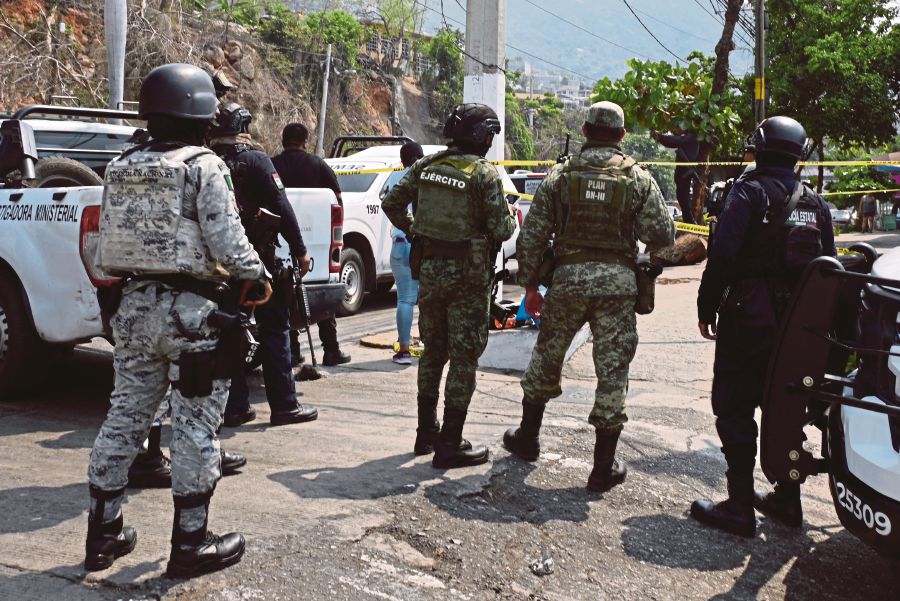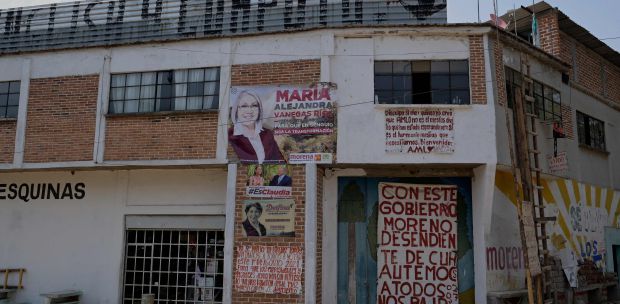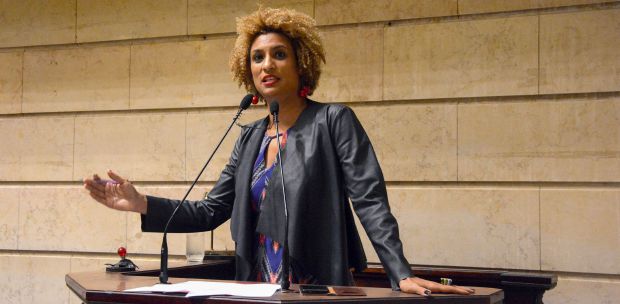GUARDED by more than a dozen police officers equipped with semi-automatic rifles and donning a helmet and bulletproof vest, Ramiro Solorio looks more like he is leading an armed raid than running for local political office.
But in parts of Mexico, where scores of political candidates have been murdered ahead of national elections on June 2, the risks of violence and assassination are is so high that many feel they have no choice but to campaign alongside armed guards or wear flak jackets and move around in armoured cars.
"We are afraid of being murdered," Solorio, 55, said, as he greeted residents in one of Acapulco's poor outskirts, the underbelly of this glitzy tourist spot, where streets stink with overflowing garbage and pools of stagnant water.
He is protected by 15 members of the National Guard after federal authorities found significant risks to his safety.
More political candidates — six — have been killed in the state of Guerrero, where Acapulco is located, than in any other in Mexico.
From September to May, across Mexico, 34 candidates or aspiring candidates have been assassinated.
Security analysts say the killings are mostly linked to drug cartels seeking to influence local elections.
Reuters talked to more than a dozen candidates and party heads to understand the impact of the violence on local elections and the fears many aspiring politicians face.
Solorio, who is running for mayor of Acapulco for the Social Encounter Party, is particularly concerned because he has made security a core issue of his campaign.
Frequently dressing as a Mexican wrestler in a blue lucha libre mask, he has dubbed himself El Brother, as he goes door to door promising to get tough on crime and corruption.
"The coexistence between the government and crime is a reality," Solorio alleged, vowing to clean up local government and restore law and order.
Although the ruling Morena party is expected to comfortably win the presidential election, the violence against local candidates is a significant blot on President Andres Manuel Lopez Obrador's legacy and one that underpins criticism that he has failed to improve Mexico's security situation.
Lopez Obrador will leave office this year when his term ends.
His successor is to be chosen on June 2, the same day as the violence-hit elections for local governments.
Lopez Obrador has dismissed data showing an increase in attacks as "sensationalism".
He defends his record on security, pointing to a five per cent fall in homicides last year compared with 2022.
But murders still hover around 30,000 a year and more people have been killed during his presidency than during any other administration in Mexico's modern history.
This election campaign has seen the highest number of violent incidents reported against candidates, according to the risk consultancy Integralia.
It counts 560 incidents, way above the previous high of 389 during the last presidential election, even if the number of murdered candidates is slightly below the 2021 gubernatorial elections.
"The violence that the electoral process is facing is unprecedented," Armando Vargas, an expert at Integralia said.
Safety concerns have led to dozens of aspiring candidates dropping out, and countless more decided never to run.
The impact on municipal politics in particular has put the very functioning of democracy at risk in certain states.
In Tumbiscatio, Michoacan, a violence-ridden town where cartels have used drones armed with explosives, authorities have decided the town is not safe enough to host a voting booth and voters will have to travel to a neighbouring town to place their ballot for mayor and other posts.
"It's an attack on democracy itself," said Vicente Sanchez, a security expert at the public research institute Colegio de la Frontera Norte in Tijuana.
Organised crime groups are effectively choosing local officials by threatening or assassinating those they oppose, he said.
In Michoacan, which borders Guerrero, Francisco Huacus is running for congress for the opposition PRD party. He campaigns in an armoured vehicle and wears a flak jacket.
"We have to campaign as if we were in a war zone."
The writer is from Reuters





